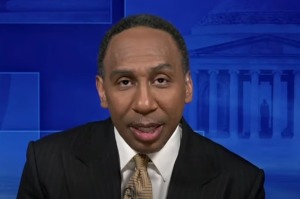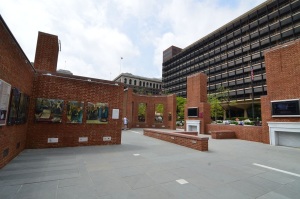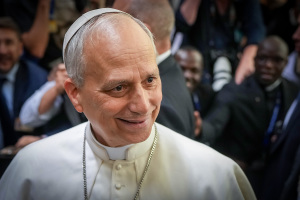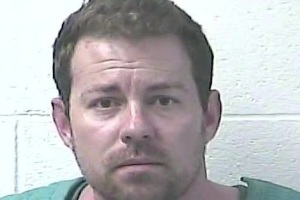Advocates raise human rights concerns overlooked in Africa as US hosts African leaders
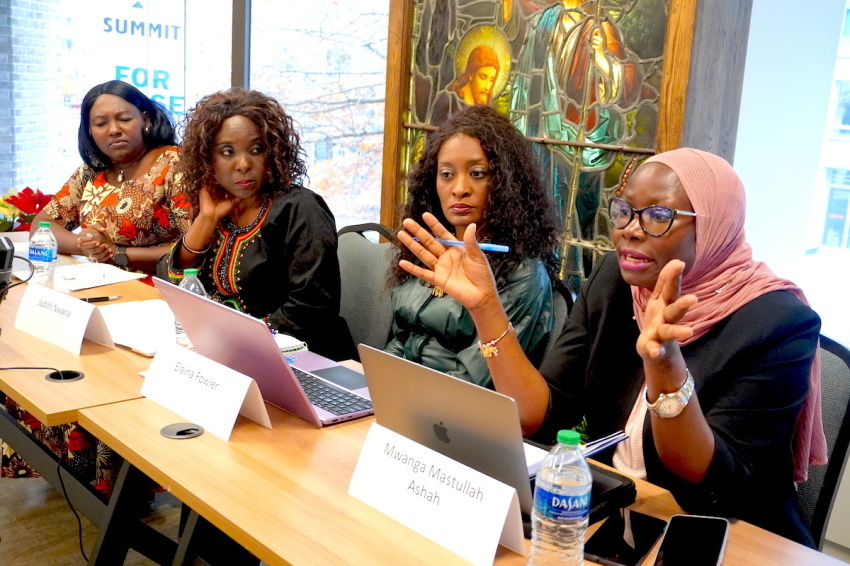
WASHINGTON — Several human rights advocates highlighted religious freedom and women's rights concerns across Africa that they say are overlooked by the U.S. State Department during an event coinciding with the agency's U.S.-Africa Leaders Summit.
The Institute on Religion & Democracy hosted the Wednesday panel discussion titled "Women and IRF: Why their Concerns are Overlooked in Africa" as African leaders gathered in the nation's capital for a three-day summit to show the United States' "enduring commitment to Africa."
Advocates such as Mwanga Mastullah and Elaina Fowler spoke on Islamic feminism and women's issues in the Democratic Republic of Congo, respectively. Meanwhile, Judith Nwana and Gloria Puldu addressed human rights violations in Cameroon and Nigeria.
Scott Morgan, an Africa and national security analyst who helped organize the event, told The Christian Post that the event was the "first step" in preparing data to be shared with the U.S. Commission on International Religious Freedom and the State Department's Office of International Religious Freedom.
"We have seen Boko Haram and Islamic State West African Province designated as Entities of Particular Concern and as Foreign Terrorist Organizations," Morgan stated.
"However, ISIS-Central Africa, also known as the ADF, is considered to be a FTO but has not been designated as an EPC despite the documentation of their attacking Churches in the Eastern DRC. Other Congolese Militias such as M23 and CODECO deserve the same designations."
Morgan stated the panelists' remarks highlight why the U.S. State Department should place Cameroon, Uganda and the Democratic Republic of the Congo on its "Special Watch List" for tolerating or engaging in severe violations of religious freedom under the International Religious Freedom Act. The act declares it U.S. policy to condemn religious freedom violations and assist other countries in promoting a fundamental right to freedom of religion.
Nwana, a steering committee member for the Cameroon Humanitarian Relief Initiative, pleaded with the U.S. government to take an "active role" in peacefully resolving conflicts in Cameroon.
According to the United Nations Office for the Coordination of Humanitarian Affairs, 3.9 million people are in need of humanitarian assistance in the country due to several conflicts, including between state security forces and armed separatist groups in the Anglophone Crisis, as well as inter-communal conflicts.
Nwana said turmoil has impacted women, preventing them from going to school due to the ongoing violence. Women also face rape or forced prostitution, and many find themselves raising a child alone or undergoing an abortion.
"We need the U.S. government and the international community not just to talk but to take action," Nwana told CP.
Fowler, founder and principal of the government affairs organization FWMgroup and president and the National Women's Political Caucus, believes that the U.S. is hesitant to take action in the Democratic Republic of Congo, where over 5 million are displaced, because corporate greed in the West has caused many issues in that part of the world.
DRC is home to the longest-running humanitarian crisis in Africa and the fourth-largest IDP crisis in the world, as intersecting conflicts have forced people to flee their homes.
"We are part of the issue; we are part of the problem because we benefit from the atrocities happening as a people here in the United States," Fowler told CP.
She said the Democratic Republic of Congo is "rich in resources," including diamonds and cobalt, a mineral used to power iPhones. This results in the tribal people living in the forests where these minerals are mined being pushed off their land, according to Fowler.
As a result, women and young girls are often raped or tortured to force their families to leave their land. Fowler urged the U.S. government to contemplate a better way to extract complex minerals to resolve the issue.
Mwanga, an Islamic feminist who serves as the executive director of the Islamic Women's Initiative for Justice, Law and Peace, spoke of Uganda's patriarchal society. She said it is not only men subjecting women but also female patriarchs. She contends that female oppression is fueled by an incorrect interpretation of Islam and the Quran.
One of Muhammad's wives, Khadija, was a successful businesswoman, but this fact is rarely discussed in mosques, she said. Mwanga argued that contrary to popular belief, the Quaran advocates for women's equality.
Puldu, an advocate for the family of Leah Sharibu, a Christian student abducted by Nigerian terrorists in 2018, spoke of how Boko Haram attacks schools in northeast Nigeria, abducting girls to prevent them from receiving an education. The panelist noted that the group's name also translates to "western education is forbidden."
Boko Haram has abducted over 1,000 children since 2013, according to a 2018 UNICEF report. This includes the 276 girls taken from a school in the town of Chibok in 2014.
Puldu also highlighted Sharibu's story as a Christian girl among 110 students abducted by Boko Haram. While the other students were eventually released, Sharibu was not because she refused to renounce her Christian faith and remains a captive to this day.
As The Christian Post reported, the U.S. State Department is urging the Nigerian government to conduct an independent investigation after a Reuters report suggested that the country's military is performing secret abortions amid its ongoing fight with Boko Haram and radical terrorist groups.
The outlet reported on Dec. 7 that the Nigerian military has carried out at least 10,000 abortions in the country's northeast as part of a secret campaign since 2013. According to witnesses, many women have been beaten, drugged or held at gunpoint.
"We have raised the allegations with the Government of Nigeria and continue to seek information," a spokesperson for the department told CP. "We were not aware of this allegation prior to the Reuters story. We are still reviewing the report and will make decisions about next steps thereafter."
Last month, the Anambra-based criminologist organization International Society for Civil Liberties and Rule of Law reported that radicalized herdsmen likely killed a combined total of at least 4,000 Christians and abducted more than 2,300 others within the first 10 months of 2022.
Nigerians in the country's farming-rich Middle States have faced violence for years, with thousands having been killed in attacks primarily perpetrated against predominantly-Christian communities.
The U.S. State Department removed Nigeria from its list of countries of particular concern for religious freedom in November 2021, prompting pushback from human rights advocates and the U.S. Commission on International Religious Freedom.
Despite a year of pleas from human rights advocates, the State Department again left Nigeria off its CPC list released late last month. Nury Turkel, chair of the U.S. Commission on International Religious Freedom, said there is "no justification" for the State Department's decision.
Samantha Kamman is a reporter for The Christian Post. She can be reached at: samantha.kamman@christianpost.com. Follower her on Twitter: @Samantha_Kamman















